What a 1031 Exchange Qualified Intermediary Really Does: Duties, Limits, and Legal Requirements
When real estate investors begin exploring tax-deferred strategies, they often hear one phrase over and over: you must use a 1031 exchange qualified intermediary. The IRS requires it, title companies insist on it, and every professional who has been through a 1031 exchange warns you not to skip it.
But what does a 1031 exchange qualified intermediary (QI) actually do? Why does the IRS make you use one? And how do you know whether you’re choosing a good one or one that could put your entire exchange at risk?
This guide gives you the complete breakdown, written in plain English, and in a helpful, investor-friendly tone. You’ll learn:
- Why the IRS mandates a QI
- What a QI does at every stage of the exchange
- How a QI protects your funds
- What a QI cannot legally do
- How to pick the right QI for your next exchange
This is your deep, SEO-optimized guide to understanding the role, purpose, and value of a 1031 exchange qualified intermediary.
Key Takeaways
- You cannot control the money in a 1031 exchange; a qualified intermediary (QI) must hold it to avoid tax penalties.
- A QI ensures the structure of the exchange remains intact according to IRS rules, handling contracts and necessary documentation.
- The QI protects your funds, ensuring they are in segregated, secure accounts while preventing constructive receipt issues.
- They coordinate all parties involved, preventing common mistakes, and maintaining compliance throughout the process.
- Choosing a reputable QI is crucial as they help safeguard your wealth against costly errors in a 1031 exchange.
Table of contents
- Why the IRS Requires a 1031 Exchange Qualified Intermediary
- What a 1031 Exchange Qualified Intermediary Actually Does
- 1. Prepares and Executes All Required Exchange Documents
- 2. Holds Your Funds in a Secure, Restricted, IRS-Compliant Account
- 3. Ensures Your Exchange Stays IRS-Compliant From Start to Finish
- 4. Coordinates With Title Companies, Escrow Officers, Lenders, CPAs, and Attorneys
- 5. Protects You From the Most Common 1031 Exchange Mistakes
- 6. Guides and Educates You Throughout the Exchange
- 7. Builds and Maintains a Complete IRS Audit Trail
- What a 1031 Exchange Qualified Intermediary Cannot Do
- How to Choose the Right 1031 Exchange Qualified Intermediary
- Why a Good 1031 Exchange Qualified Intermediary Protects Your Wealth
- Final Thoughts
Why the IRS Requires a 1031 Exchange Qualified Intermediary
You cannot touch the money—ever
This is the single most important rule in a 1031 exchange: You cannot receive or control the proceeds from your sale.
If you touch the funds, even by accident, the IRS labels your sale as a taxable event. You lose all deferral rights immediately.
The solution is simple: a 1031 exchange qualified intermediary steps in to hold the money in compliance with federal regulations.
The QI keeps the exchange structure intact
A 1031 exchange is not a loophole. It’s a structured “swap” under IRS rules.
You sell one investment property. You buy another. The IRS views this as an exchange only if a neutral third party manages the funds and assignments.
A QI ensures:
- You never receive the funds
- Contracts contain the required assignment language
- The money flows through the proper channels
- The IRS recognizes the transaction as a true exchange
Without a QI, your exchange collapses into a basic sale and purchase. And it becomes taxable.
What a 1031 Exchange Qualified Intermediary Actually Does
Most investors think the QI just “holds the money.” In reality, they manage the accounting, compliance, legal documentation, deadlines, contracts, wiring instructions, tax regulations, and communication with every party involved.
Here’s the full picture.
1. Prepares and Executes All Required Exchange Documents
Assignment of the Sale Contract
To qualify for tax deferral, the QI must be assigned into your sale contract. This assignment changes the nature of the transaction under IRS rules.
The QI prepares:
• Assignment of the sale contract
• Notice of assignment to all parties
• Instructions to the title company
Without this step, the IRS does not consider your sale part of an exchange.
Assignment of the Purchase Contract
The same requirement applies to your replacement property. A QI prepares:
• Assignment of the purchase contract
• Notice to the seller
• Documentation for title and escrow
This ensures the IRS views your buy side as part of the same exchange process.
The Exchange Agreement
This is the legal core of the transaction.
It includes:
• All IRS deadlines
• Restrictions on your access to funds
• Details about assignment of contracts
• Rules for how and when funds are released
• Reporting requirements
• Identification instructions
A 1031 exchange qualified intermediary prepares and executes this legally binding agreement before the closing of your sale.
45-Day Identification Documentation
Your QI also handles:
• Identification letters
• Revisions
• Replacement property lists
• Confirmation signatures
• Audit-ready backups
The IRS is strict. A vague or late ID letter kills the exchange.
2. Holds Your Funds in a Secure, Restricted, IRS-Compliant Account
Why the QI holds the money instead of you
If you or your entity has access to the funds (even if they sit in your attorney’s trust account) the IRS will treat the transaction as a taxable sale.
The QI prevents constructive receipt by holding funds in a restricted account that only the QI controls.
How legitimate QIs protect funds
A reputable 1031 exchange qualified intermediary uses:
- Segregated client accounts
- Restricted access
- Dual-control systems for all disbursements
- FDIC-insured institutions
- Written wire-verification procedures
- Daily reconciliation of accounts
- Cybersecurity insurance
- Fidelity bonds
- E&O coverage
Some QIs skip these protections, which is dangerous. There have been major QI fraud cases in multiple states where investors lost millions.
Why account structure matters
Pooling funds together means your money is exposed if another client’s exchange goes bad. Segregated accounts mean your money is legally and financially isolated. A top-tier QI uses segregated, restricted accounts 100% of the time.
3. Ensures Your Exchange Stays IRS-Compliant From Start to Finish
Tracking the 45-day identification window
The 45-day identification deadline is unforgiving. No weekends. No holidays. No grace period unless FEMA declares a federal disaster.
Your QI:
- Calculates identification deadlines
- Reviews your property descriptions
- Verifies IRS-compliant identification methods
- Confirms rule selection (3-property, 200%, or 95% rule)
- Time-stamps documents
- Provides audit-ready documentation
Tracking the 180-day completion window
You must close on replacement property within 180 days.
Your QI monitors:
- The timeline
- Lender delays
- Seller extensions
- Title curative issues
- Assignment requirements
- Wire timing
- Final settlement statements
A skilled QI alerts you to timing risks before they become problems.
Preventing “disqualified party” violations
A QI ensures no prohibited party takes part in the exchange, including:
- Your attorney
- Your CPA
- Your broker
- Anyone who has worked for you in the past two years
Only a true third-party qualifies.
4. Coordinates With Title Companies, Escrow Officers, Lenders, CPAs, and Attorneys
Why coordination matters so much
A 1031 exchange involves many moving parts. Mistakes usually happen at closing, not during planning.
A QI communicates with:
- Title and escrow
- Attorneys
- Lenders
- Underwriters
- Buyers and sellers
- Listing agents
- CPAs
- Tax planners
What the QI checks and corrects
A 1031 exchange qualified intermediary reviews:
- Settlement statements
- Assignment language
- Wiring instructions
- Lender approvals
- Entity names
- Signatures
- Exchange timing documentation
- Receipt of funds
- Disbursement instructions
Any of these areas can derail an exchange if done incorrectly.
5. Protects You From the Most Common 1031 Exchange Mistakes
A QI is like a compliance bodyguard. They stop you from making errors that could cost you six figures in taxes.
The biggest investor mistakes a QI prevents
Mistake: Taking possession of funds
You can’t hold the money even for a minute.
Mistake: Missing the 45-day deadline
There are no exceptions.
Mistake: Incorrect property identification
The IRS requires complete, specific, traceable descriptions.
Mistake: Buying under the wrong entity
The same taxpayer must sell and buy.
Mistake: Failing to replace debt
If your debt drops, the IRS taxes the debt reduction as “boot.”
Mistake: Letting your CPA or attorney act as QI
They are disqualified by default.
Mistake: Not assigning contracts properly
Assignment errors can void the entire exchange.
6. Guides and Educates You Throughout the Exchange
A great QI explains the rules in plain English
Your QI helps you understand:
- Identification strategies
- Replacement property selection
- Debt replacement rules
- Boot calculations
- Partial exchange options
- Reverse exchange basics
- Improvement exchange rules
- DST and TIC replacement structures
- Partnership complications
A smart QI simplifies complex rules.
QIs answer the urgent questions
During a 1031 exchange, investors often need:
- Same-day answers
- Closing-room explanations
- Immediate contract corrections
- Wire-ready instructions
A good QI is responsive and easy to reach.
7. Builds and Maintains a Complete IRS Audit Trail
Your audit file is created automatically
A 1031 exchange qualified intermediary also manages:
- Identification letters
- Assignment paperwork
- Wiring history
- Closing statements
- Exchange Agreement
- Instruction letters
- Settlement documents
- Timeline confirmations
- Transaction ledgers
- Legal notices
This becomes your audit file.
The QI helps defend your exchange if the IRS asks questions
If the IRS audits your return, the QI can:
- Provide formal documentation
- Explain the process
- Confirm deadlines
- Document each transfer of funds
- Supply assignment proofs
A strong audit file gives you protection long after the exchange ends.
What a 1031 Exchange Qualified Intermediary Cannot Do
They cannot give legal or tax advice
Even experienced QIs must stay within strict boundaries. They cannot:
- Give legal opinions
- Recommend tax positions
- Draft legal documents unrelated to the exchange
- Analyze your depreciation impact
- Advise you on entities
That’s what your attorney and CPA are for.
They cannot let you access your funds
Not even for short-term reasons. Not even for repairs. Not even for lender-required costs.
They cannot extend deadlines
If you miss day 45 or day 180, the exchange ends immediately.
How to Choose the Right 1031 Exchange Qualified Intermediary
Some QIs are excellent. Some are risky. And some have gone bankrupt with client funds.
Key criteria to evaluate
1. Fund Security
Look for segregated accounts, not pooled accounts.
2. Experience
Choose QIs who handle reverse, improvement, partnership, TIC, and DST exchanges.
3. Legal Knowledge
Your QI must understand IRS safe harbors, Treasury Regulations, and state-specific rules.
4. Availability
Fast response time is essential during a deadline-driven exchange.
5. Insurance and Bonding
Ask for:
- Fidelity bonds
- E&O insurance
6. Reputation
Look for educational content, professional involvement, and real client reviews.
Why a Good 1031 Exchange Qualified Intermediary Protects Your Wealth
A 1031 exchange can save you hundreds of thousands in taxes. But the rules are rigid. The deadlines are unforgiving. And the IRS provides no mercy for honest mistakes.
A skilled QI protects:
- Your capital
- Your tax deferral
- Your documentation
- Your deadlines
- Your peace of mind
A quality QI isn’t an optional convenience. They are the backbone of a compliant, successful, profitable 1031 exchange.
Final Thoughts
A 1031 exchange qualified intermediary does far more than hold money. They guide, protect, document, assign, coordinate, educate, secure, and defend your entire transaction. Choosing the right QI can be the difference between a smooth exchange and a six-figure tax bill.
When you work with a trusted, experienced intermediary, you gain confidence that your exchange is IRS-compliant, secure, and optimized for long-term wealth building.
Check out these other helpful articles:

Reverse 1031 vs. Traditional 1031: Which One Is Right for Your Strategy?

How Do You Figure Depreciation on Rental Property?



